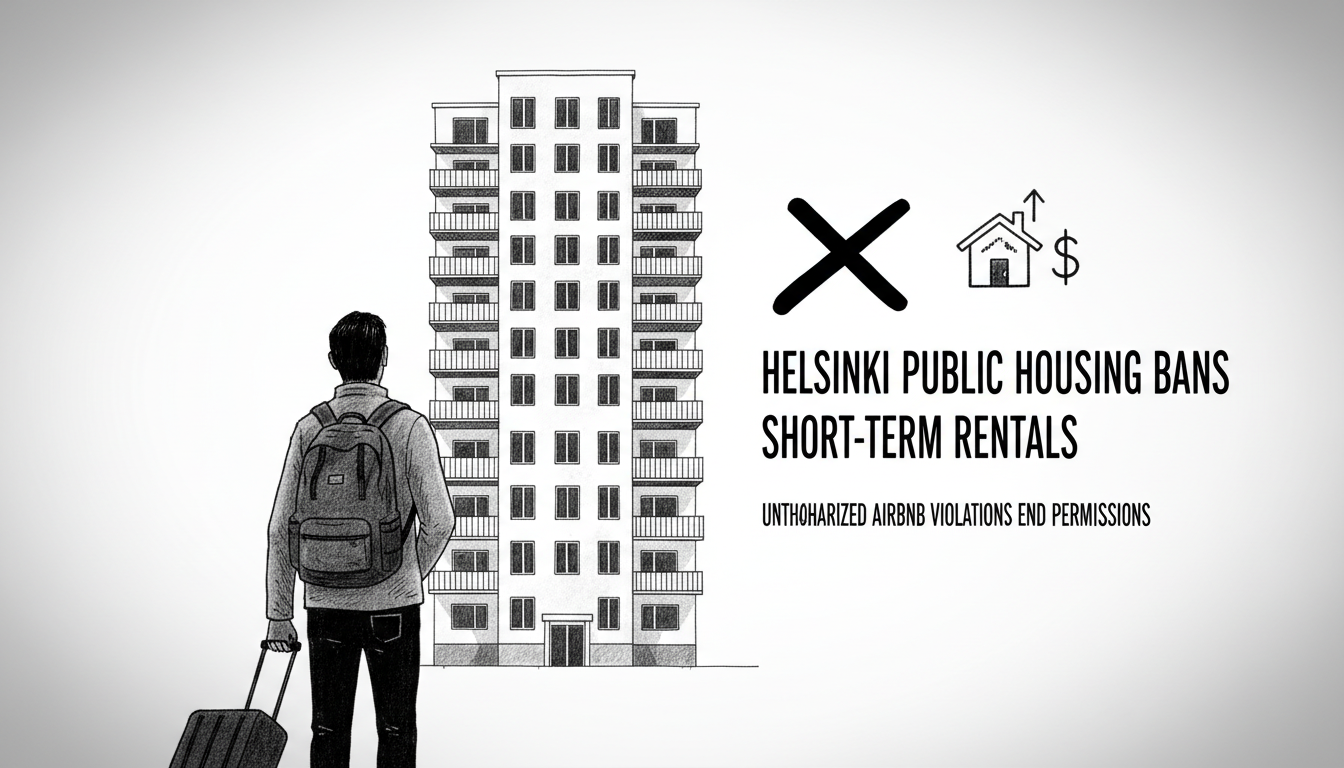Helsinki's public housing company Heka has banned short-term rentals in its apartments after discovering unauthorized listings on platforms like Airbnb. The immediate ban stops all new permissions for temporary subletting, though existing approvals remain valid until they expire.
CEO Maria Aspala explained the policy change in a statement. She said subletting was never meant for commercial activity. The system aimed to help residents handle normal life changes. Some tenants abused this trust. They rented apartments for longer periods than permitted. Different people occupied apartments than those approved by Heka.
Heka previously granted 30-day subletting permissions. These allowed residents to temporarily relocate for work or study. The company never intended apartments to become commercial rental properties. Unauthorized short-term rentals now constitute illegal transfer of occupancy.
First-time violators will receive warnings. Repeated or long-term unauthorized renting may lead to lease termination. Heka takes this seriously because public housing exists to provide affordable homes, not business opportunities.
Certain subletting arrangements remain permitted under strict conditions. Tenants can transfer leases to family members. They can temporarily assign apartments to others with valid reasons like temporary relocation. Taking in subtenants is also allowed for up to half of the apartment's rooms. Studio apartments cannot be sublet at all.
Temporary transfers require notification to Heka and legitimate grounds. The company must approve all arrangements in advance. This ensures proper oversight and prevents commercial exploitation.
This crackdown reflects broader European concerns about short-term rentals impacting housing markets. Cities like Barcelona, Berlin, and Amsterdam have implemented similar restrictions. They aim to preserve long-term rental stock amid tourism pressures.
Helsinki faces particular challenges as Finland's capital and largest city. The municipality provides approximately 60,000 apartments through Heka. These serve low and middle-income residents. Protecting this affordable housing stock remains crucial for city stability.
The timing matters as Finland's tourism industry rebounds post-pandemic. Short-term rental demand increases during summer months. This creates temptation for tenants to monetize their apartments illegally.
Heka's move demonstrates practical enforcement of existing rules. The company balances flexibility for legitimate needs with firm action against exploitation. This approach maintains the social purpose of public housing while adapting to modern rental market challenges.
International readers should understand Nordic public housing operates differently than in many countries. Municipalities often own substantial housing stock. They manage these properties as social services rather than profit centers. Regulations prioritize stable communities over market efficiency.
This policy change will likely influence other Nordic cities facing similar issues. Stockholm and Copenhagen monitor Helsinki's approach as they develop their own short-term rental policies. The balance between resident flexibility and housing protection remains delicate across the region.

